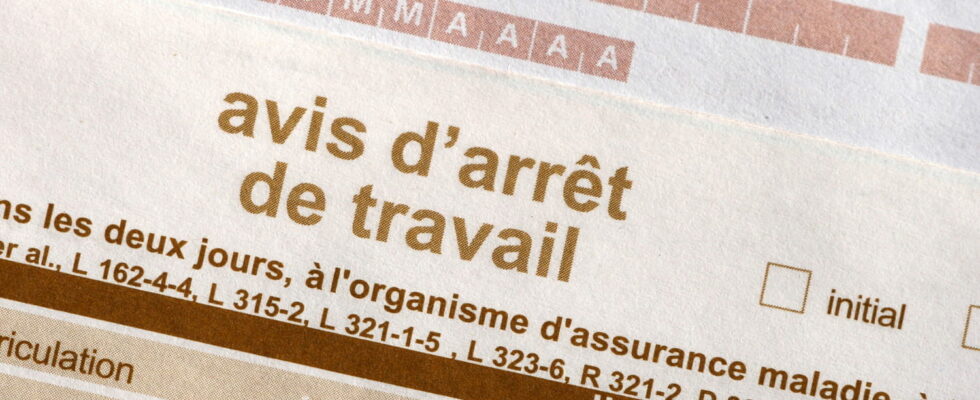A decree published at the very beginning of summer introduced new rules regarding work stoppage, and non-compliance with them can have serious financial consequences for employees.
If summer is synonymous with vacation for the vast majority of the population, everything does not stop. Although the Government often slows down between the end of June and the beginning of September, it is not completely idle either, and sometimes takes advantage of these months of relaxation to discreetly push through some reforms. This is precisely the case of a decree published on July 5 and relatively unnoticed, which subtly modifies the Labor Code by adding three new articles with significant consequences in terms of sick leave.
In the event of illness, injury or accident, any employee with at least one year of service in their company can benefit from sick leave on the basis of a medical certificate. He thus keeps all or part of his salary during his period of absence, thanks to daily Social Security allowances (IJSS) on the one hand, and additional allowances paid by his employer on the other hand. Thus, the accumulation of compensation must guarantee the employee income equivalent to 90% of their gross remuneration during the first 30 days of the work stoppage, then 66.66% of this remuneration during the following 30 days.
In return for the additional compensation paid by the employer, the latter has the right to request a second medical examination, carried out by a doctor of its choice, in order to verify the validity of the prescribed work stoppage. But until now, the conditions under which this counter-visit was to take place were not defined, which could lead to tensions, or even conflicts, between employer and employee. It is this precise point that is clarified Decree No. 2024-692 of July 5, 2024by establishing the terms and conditions of the medical counter-examination provided for in Article L. 1226-1 of the Labor Code.
Thus, the employee is now subject to two new obligations from the start of the work stoppage: he must indicate to his employer the chosen place of rest, if this is different from his usual home, as well as the times at which he can carry out the medical counter-examination if he benefits from a stop with the mention “free exit”. And this information is particularly important, because the employer can mandate a doctor to carry out a second medical examination at the place and at the times indicated, without any notice to the employee. The doctor can also summon the employee on leave to his office, this time by sending him a summons by any means allowing a date of receipt to be certified.
In either case, the doctor immediately transmits his conclusions to the employer at the end of the second visit. And if he judges the work stoppage to be unjustified, if he indicates that the employee was not present at his place of rest or that he did not respond to the summons, then the payment of compensation may be suspended. . The sanctioned employee’s only recourse is to contact the Social Security Medical Control Department to request a review of their situation. Thus, it is therefore necessary to take note of the conditions mentioned on the work stoppage and to respect them scrupulously, in order to avoid putting yourself at odds with your employer and exposing yourself to to a significant loss of income.
